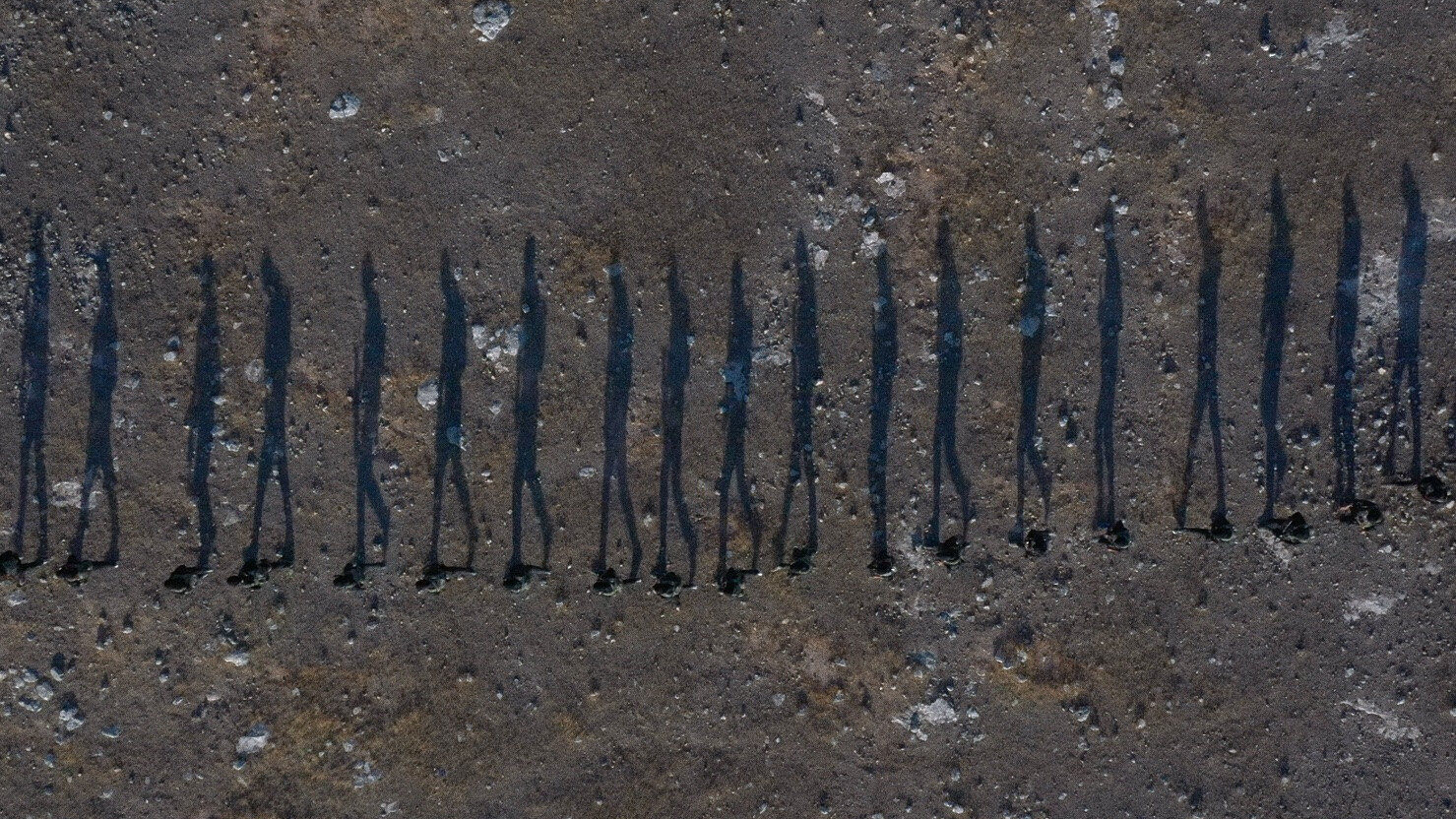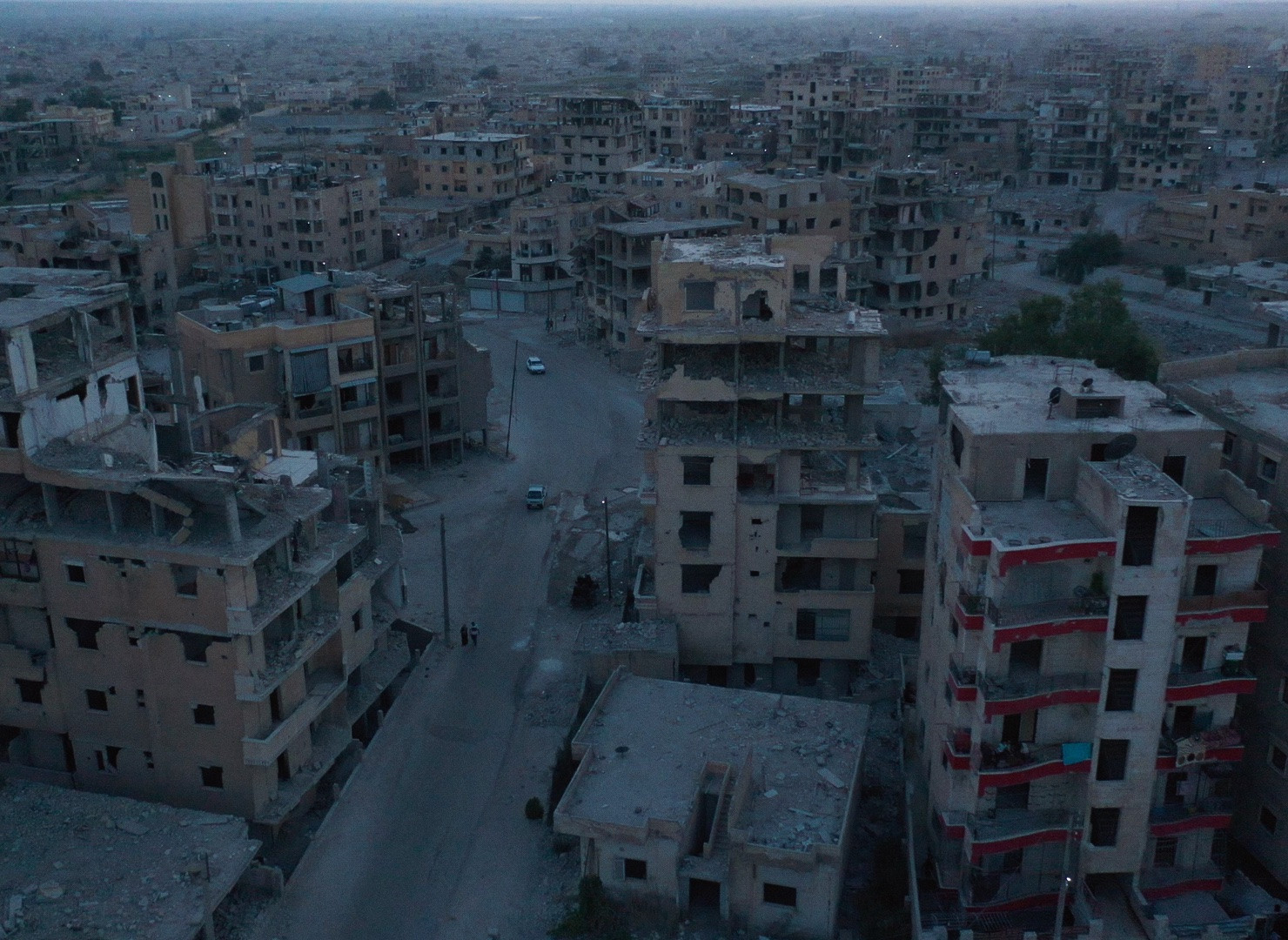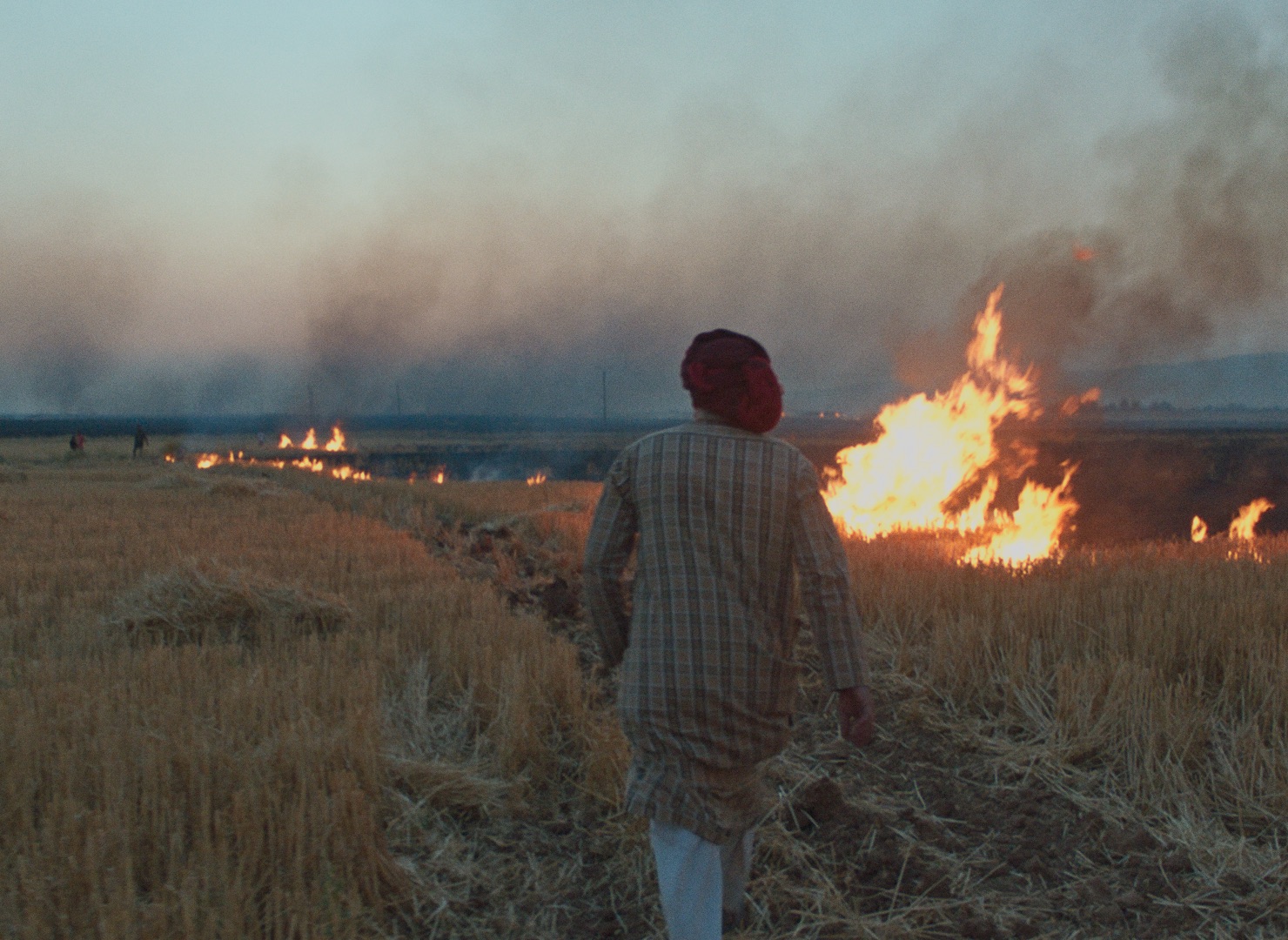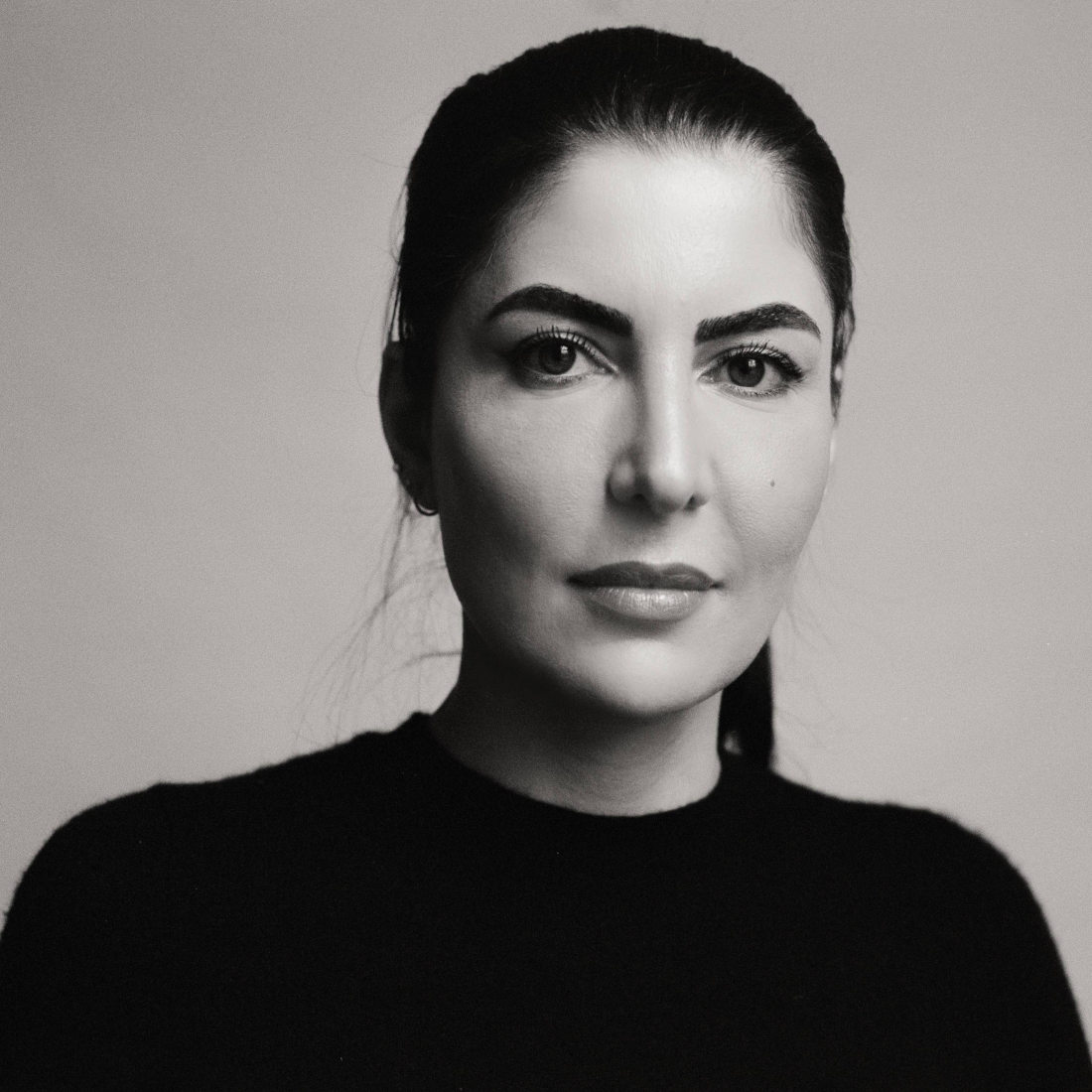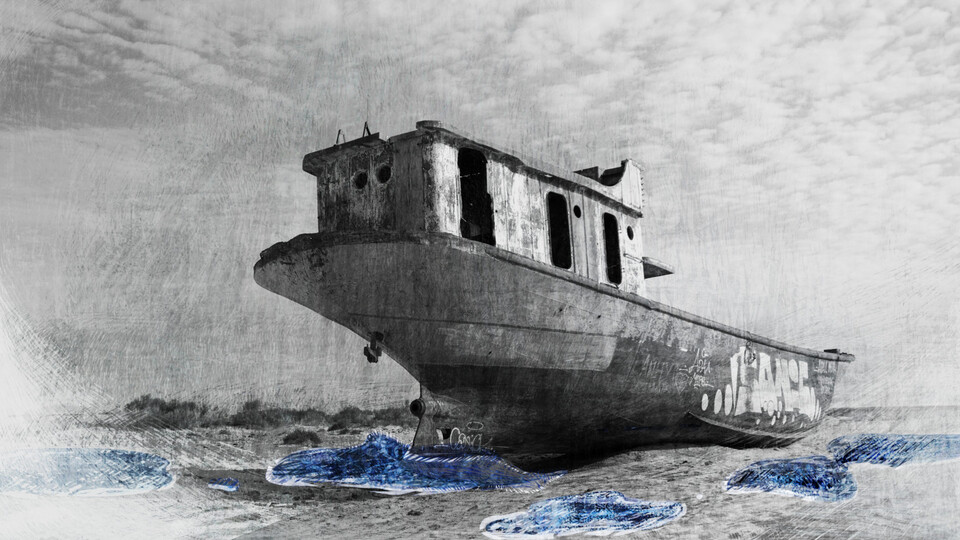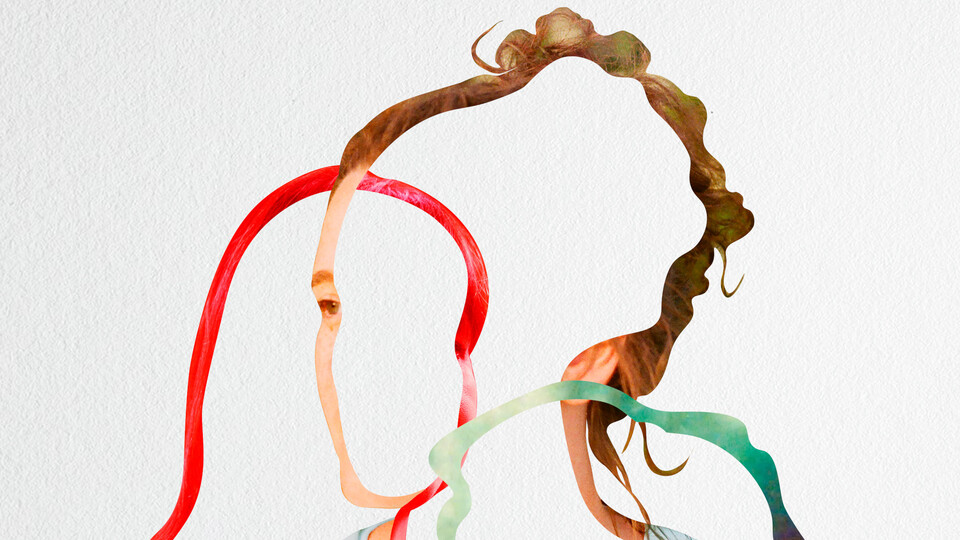The voices of those we don't normally hear are important
This year, IDFF Jihlava presented the documentary Rojek by the Canadian director of Kurdish origin Zaynê Akyol, which depicts the war-ravaged Syrian Rojava, or Western Kurdistan, as the Kurds call the area. What makes this film exceptional, however, is that it seeks to understand the motivations of imprisoned members of the Islamic State through interviews with them.
Although the Islamic State (ISIS) suffered a major defeat in 2019 and now survives as a network of sleeper cells, your film Rojek shows that the ideological conflict between radical Islam and the rest of the world is not over. One of the ISIS members in your film says that ISIS is like a glass plate: if you hit it, it doesn't disappear, it just shatters into thousands of pieces. That is exactly what is happening now. Was this warning your intention?
You got the message of my film right, that the ideological struggle is not over. That was my intention. Everything in films is intentional, whether it's a documentary or a feature film. I worked on this film for six years, so I had time to think about everything in it. I'm Canadian, but I'm of Kurdish descent and I've been going to Syria or Iraq for over ten years. During that time, I've observed that the fighting may be going on, but the real problem is the ideology. Although the war is seemingly over, there are still ISIS sleeper cells not only in Syria and Iraq, but also outside the region, preparing attacks and operations from those countries. It therefore affects us all. It was a challenging shoot, but I think my film also makes demands on the viewer.
In Rojek, you show specific faces of ISIS, which we are used to seeing as an inhuman threat and a unified evil. But you are showing us the different stories and motivations of the imprisoned members of ISIS so that we are able to see them, hear them and hopefully understand them. How did it feel for you as a Kurd to make a film like this?
Identifying ISIS with an inhuman evil that we can't relate to is itself part of the Islamic State's propaganda. They are trying to frighten people into seeing them as an evil that is capable of anything and is omnipresent. Members of ISIS focus a lot on the media. Before Rojek, I made my feature debut Gulîstan, Land of Roses, which was also screened at the Jihlava festival. I filmed Kurdish women fighting against the Islamic State. It was a very emotional shoot for me because I spent a lot of time with them and I developed a relationship with them. Many of them died and I lost their friendship. I couldn't understand the evil that it caused. So I started thinking about interviewing imprisoned ISIS members to understand their motivations. I was not comfortable filming the interviews in the film Rojek, but I thought that if I, as a Kurdish woman, can listen to these people, then anyone can do it. I think it's important to hear those we don't normally hear. If we don't understand these people, we can never find the right way as a society to stop the spread of this ideology. I met a hundred imprisoned ISIS members and fifty of them agreed to be filmed. They accepted for various reasons, but the overwhelming one was that they could spread their ideology through my film. That was the tricky thing about the film. I didn't want to give them so much space to express themselves. So I tried to keep some balance so that they would answer my questions. I had the same set of twenty questions for everybody, which I supplemented with another twenty questions depending on what function these people had in ISIS, what countries they came from and their personal stories. I always introduced myself to them so they knew who I was and what I did. I sat across from them and tried to understand them - I put a face, experience and life story together, so I also wanted them to look into the camera as if they were speaking directly to the audience. This was my way of understanding. And I think it made me realize some solutions for how the whole thing could be stopped or let’s say prevented.
Really? Tell us please.
It's just my observation, I'm no expert. I think people who don't feel like they're part of society join ISIS. These people have not been integrated into mainstream society. In France, for example, there are many ghettos where there are people from different origins who find it difficult to find work in the society they were born into. The same thing is happening in Germany, where there is xenophobia and misunderstanding towards immigrants, for example. The policies of many states are discriminatory and these people feel discriminated against, they are trying to find answers to their questions and Islamic extremism will give them answers. For everything. I think that's their method of recruitment and the reason ISIS recruits so easily. Of course, that's a generalization of sorts of the whole problem, because we saw a doctor from Canada in his 50’s, for example, who is a member of ISIS, and I don't understand why these people find meaning in extremism. For example, during the making of the film, I learned that Turkey has a sponsored network of mosques in various European countries where it sends extremist imams to recruit young men to ISIS. Such a place should, in my opinion, be monitored by the government as any other place of worship like churches or temples. As a society we have a number of options on what to do about this, I am not saying anything new here and I am sure that a number of things are already being done in this direction.
“Reality is much more interesting than people's imagination. Imagination is always limited to some extent, but reality is always breathtaking.”
You said it was risky to give ISIS members such space in a documentary. You didn't feel the need to confront them yourself, to go into their speeches? You're not visible in the picture, and you only occasionally ask questions in the audio, but you rarely confront them with your perspective. On the other hand, you intersperse the interviews with drone footage that reveals in large chunks a country devastated by the protracted war with ISIS. Could this be your pandanus to their talk?
Exactly, that was the concept of my film. But I have to add that in the second part of the documentary I do respond to them sometimes and question them more, but I never try to accuse them because they are already in jail and I am not the judge. The position of the listener is very different from that of the judge. Yet it would be terribly easy for me to judge them, I am a Kurd and I am potentially the least suitable listener for them. At one point, I answered them, because I wanted to understand what is an infidel as they we must not forget that ISIS is not only fighting infidels call those who do not believe in in God. It is also fighting Muslims, because eighty per cent of the Kurds are Muslims, and most of the people who are dying in this war are Muslims. But according to ISIS members, they are not real Muslims because they do not follow the «real» Islam. So I wonder what they mean by that term.
Now a large number of ISIS members are imprisoned in Kurdish prisons. But is that a solution? How do you think society should deal with them going forward?
They have secured imans in Kurdistan who are trying to explain to them that ISIS has given them a false interpretation of Islam. These people are brainwashed, they believe that life in this world does not matter because paradise will come. In Kurdistan, on the other hand, we are against the death penalty, and it is already clear from my film Gulîstan, Land of Roses that the Kurds are a nation that is in favour cultural and religious pluralism, feminism and environmentalism, which is completely opposed to the doctrine of the Islamic State. Two extremes are thus pitted against each other. The current members of ISIS need to be deradicalised. I think it can be done to a certain extent. However, it depends on specific people, as is also evident in my film Rojek. There are some people who really regret what they did, but they are few, about four out of a hundred. But we cannot treat them undemocratically, because it is our democratic values that stand against their values. On the other hand, we are being undemocratic when we put them in prison. In my opinion, they should be taken back to their countries of origin and brought before a democratic court. But that is expensive. Why, however, should the Kurds, who themselves have neither the money nor the organisations to deal with them. Moreover, there are thousands of these members. How to keep them under lock and key? It's a ticking bomb.
You mentioned feminism and the emancipation of Kurdish women and Kurds, but on the other hand, in your film, a woman who is a high-ranking member of ISIS speaks out and says that she feels free there and that Daesh is her family. How did you perceive that?
The woman's name is Fatiha and she is one of the highest ranking and most dangerous women in the Islamic State. She's very well known in the intelligence services, she was linked to events in Bosnia, she had links to the Taliban and Osama bin Laden. Her husband and one son died in Saudi Arabia. She was from Morocco, a lawyer and studied in France, where she is said not to have worn a hijab, but a miniskirt. She eventually met her future husband and began to gravitate more towards extremism. She is now imprisoned in a special cell because she is too dangerous. She answered any question I asked her very logically. People easily sympathize with her. I spent a week of filming with her trying to convince me that she was doing the right thing. She's very intelligent, charming and persuasive, on the wrong side.
Did you use the EyeDirect method in filming the interviews, which Errol Morris came up with years ago and which allows the people being filmed to look directly into the camera?
I wish! I had a pretty specific way of filming. I stood behind the camera, made a sort of mark above the camera and tried to ask everyone to look in front of them at the mark. That way it felt like they were looking directly into the camera. They could see my hand and sometimes my eyes. I didn't want to interfere too much with their talking because editing can deform their speeches, so I allotted them a minute for each question and I had a few cues, like if they were going into too much detail I would make a gesture with my hand to speed it up or make it more concise, and if they weren't looking at the camera I would gesture again. But sometimes there was a problem with translation, because although I speak French, English, Kurdish and Turkish, when it came to another language I was lost. I worked with five different translators, so I had to explain my approach to everyone. I also had to adapt my method to the fact that I had limited time to film in prison. We had to have the shoot prepared in advance.
“I dream of a world where borders don't exist. But the world hasn't got there yet.”
Did you know from the beginning that you would also be working with drone shots of the landscape, which create a contrast to the prison interviews?
Yes, I wanted to get these images of Kurdistan into the film. Everything was planned. The only thing that changed was the subject of the film itself.
What do you mean?
My original intention was not to make a film only about the Islamic State, but mainly about the Kurdish commander-in-chief of the Women's Protection Units and the Syrian Democratic Forces, who fought in Rojava and was responsible for all the military operations in the Syrian city of Raqqa, which was the seat of the Islamic State and which she de facto liberated. Her name is Rojda Felat. She's in her 40s and I wanted to make a film about her while trying to understand the motives of ISIS members and capture the devastation of the country. I prepared a number of things, but the documentary never turns out the way you plan it. Rojda didn't have time to film, at the time she was guarding Syria's border with Turkey because there were attacks from the Turkish side. I couldn't follow her and her crew to the border, it was too dangerous. So I changed the plan and tried to get permission to film in the prison. This was also difficult because there is no central government in Rojava, so I had to make a number of applications to get permission. In short, I originally wanted to have less Islamic State and more Kurds in the film, and it turned out the other way around. But it's ultimately a better film than I could have imagined. Because reality is much more interesting than people's imagination. Imagination is always limited to some extent, but reality is always breathtaking.
There is a motif of fire running through your film that gives way to a powerful image of destruction. Is it a symbol of the total destruction caused by war, whichever side we are on?
I don't think so. I think it's perfectly okay to fight back in this case, because somebody has to stop the Islamic State. I cannot imagine how it would have turned out if the Kurds and the coalition had not stopped them. People have to defend themselves when they are attacked. What I was trying to convey with the fire was that ideology is burning this country. There's a shot of a soldier trying to put out the fire with rags, but there's more and more of it. I want to show that this is an ideological struggle in which the main weapon is not bombs and ammunition. The fire appears slowly from the beginning of the film and in the end it looks uncontrollable. However, this is not just my metaphor; unfortunately, these fires are a daily occurrence in Kurdistan, and people have no idea who exactly is starting them - perhaps the Islamic State's sleeper cells, perhaps the Turkish government or the government of Bashar al-Assad. The aim is to make people regret living in Kurdistan, because farmers' wheat crops are burning and they have nothing to feed themselves or their animals.
You live in Canada and you're Kurdish. What does it mean for you to identify with the Kurdish nation - the largest nation in the world without its own state, which has been struggling in vain for decades for its independence and autonomy?
You know, from a personal point of view, this question actually sounds strange, although I like it and I understand why you ask it. How would you react if I asked you the same question - what does being Czech mean to you? Tough question, huh? I don't present myself as Kurdish anywhere, I've only done it on my two films where it made sense. Of course I feel like Kurd and I Canadian, but overall I don't like any flags or borders, there is only one world and people everywhere are the same and equal and should be free. I dream of a world where borders don't exist. But the world hasn't got there yet.
I also ask because in the Czech Republic we are now experiencing the struggle of the Ukrainians for their independence from Russia. We, like the Ukrainians, have experienced what it is like to live under the domination of someone else. I can therefore imagine how important autonomy is for the Kurdish people. Your previous film, Gulîstan, Land of Roses, shows how brave and courageous the Kurdish women are, who have given up everything and are trying to protect Kurdistan (not only) against the Islamic State.
Yes, they are very brave and I admire them very much. They are committed to their convictions, they have sacrificed their personal lives, their families and often their own lives. I answered the previous question from my personal perspective. However, if we were to look at it through the lens of the war and Kurdistan, I would answer differently. Because the problem is that as soon as I insist that I am Kurdish, I am already separating myself, there is already a sense of separation that leads to division, to wars. We are all the same. That is the point of my film Rojek - to show that even the members of Daesh are people like us, only misguided, who have made many mistakes, they are criminals and murderers, and yet there are things that unite us - ordinary human feelings, a sense of family, hope, even if we all see it in different ways.

